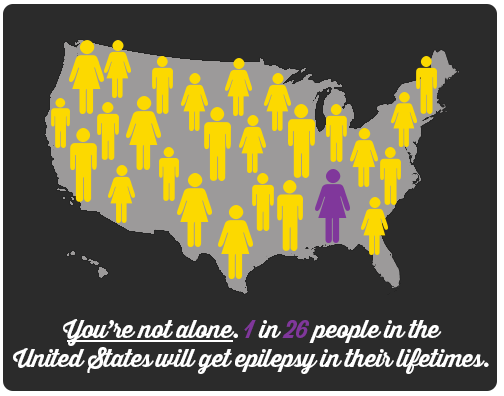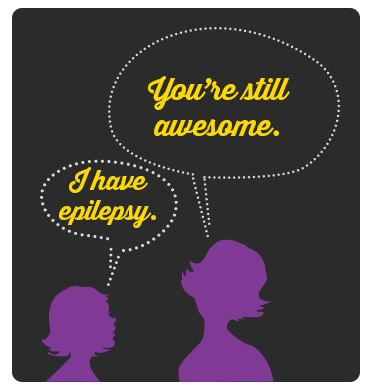epilepsy 101
Everyone experiences epilepsy differently.

If you’ve been diagnosed with epilepsy, you’ve probably had a couple of seizures. Seizures can temporarily change a lot of things, like how you feel, what you think, or what your body does. There are over 30 different kinds of seizures. Some people have them all the time. And some people hardly ever have them. Your experiences with epilepsy could be totally different from someone else’s.
You’re not alone.
Epilepsy affects people all over the world. In the United States, over two million people have epilepsy!
Yep, you can do it all.
Sure, there are some challenges of living with epilepsy. But most people with epilepsy can do everything people without epilepsy can do.
It’s not all easy.
Epilepsy has been around a long time. But many people don’t understand epilepsy. And some people don’t know what to do when someone tells them they have epilepsy or has a seizure. Sometimes people react badly when you tell them you have epilepsy because they don’t understand it. If that happens to you, remember that there are lots of great people out there who will understand and support you.
Checklist for talking with someone new about epilepsy.

Want more information about epilepsy?
~ stephanie
I don’t believe in sugarcoating anything. If someone wants to be an important part of my life, they can’t be wary of me because of my epilepsy. When I tell people about my epilepsy, I just straight up tell them, “Hey I do have epilepsy, here’s what to do if I have a seizure.”
~ alexandra
If you want to tell someone you like about you epilepsy, explain how it impacts YOU personally and write down EXACTLY what to do if you have a seizure in their presence. I’ve found this especially useful to avoid unnecessarily ambulances/hospital visits, and it calms them down a bit if something happens. It also keeps you safer. And don’t be ashamed of your seizures.
~ rebecca
I have made an informational video about epilepsy that I put on Facebook. I get all my friends to watch it. It helped all my friends because I think people should know right away what you have. It’s being caught by surprise that seems to make people scared.
~ ashley
I tell people what to do in case I have a seizure around them. Then I try to reassure them that nothing bad will happen when I have a seizure.
